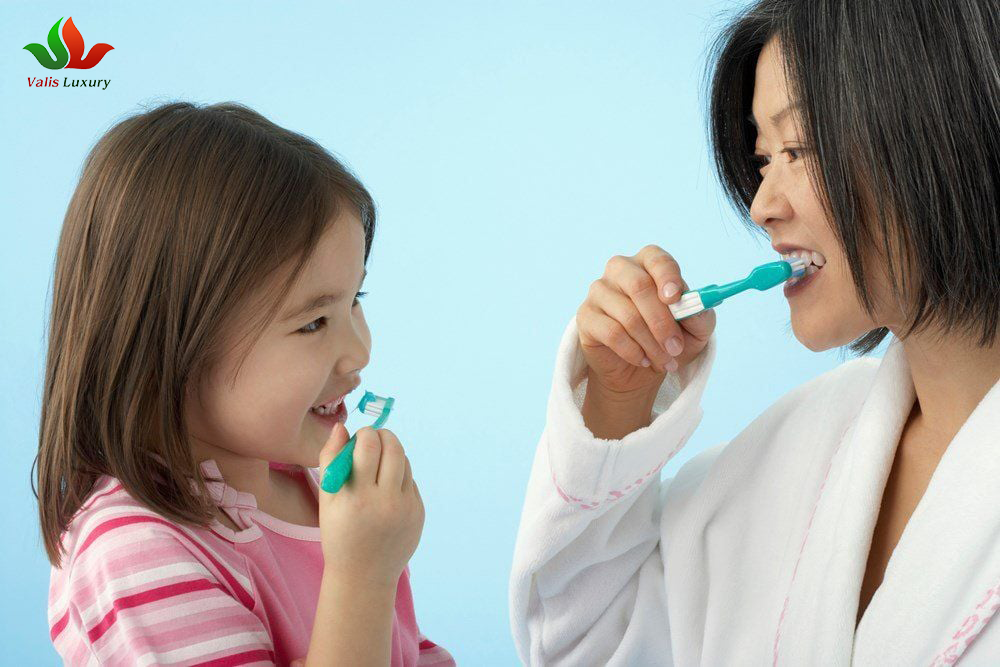Why Children Get Cavities Easily – What Parents Need to Know | Valis Dental Guide
Introduction: When Little Teeth Face Big Problems
As a parent, there’s no worse feeling than seeing your child in pain—especially when it’s something preventable, like cavities. Sadly, tooth decay is the most common chronic disease in children, and it can begin as early as infancy. At Valis Dental, we frequently encounter parents wondering:
“Why does my child get cavities so easily?”
“We brush every day—what’s going wrong?”
In this comprehensive guide, the pediatric dental team at Valis Dental explains why children are especially prone to cavities and how you can protect your child’s teeth from an early age.

Part 1: Understanding Cavities in Children
🦷 What Is a Cavity?
A cavity is a hole in the tooth caused by bacteria that produce acid when they feed on sugars in the mouth. This acid slowly erodes the tooth’s protective enamel, leading to decay.
In children, cavities develop faster and can become more serious, more quickly—especially when baby teeth are involved.
Part 2: Why Are Children More Prone to Cavities Than Adults?
There are five key reasons:
1. Thinner Enamel on Baby Teeth
Baby teeth have thinner enamel than adult teeth. This means acid can break down the tooth faster and more aggressively.
2. Frequent Snacking and Sugary Foods
Children love snacks—unfortunately, many of them are full of sugar. Foods like candy, cookies, fruit juice, flavored milk, and even gummy vitamins fuel cavity-causing bacteria.
3. Incomplete Brushing Technique
Kids often miss spots when brushing. Many don’t brush for the recommended 2 full minutes, and some skip brushing altogether—especially when tired or distracted.
4. Bedtime Bottles or Nighttime Breastfeeding
Prolonged exposure to milk or formula during sleep allows sugars to sit on the teeth for hours. This can lead to “baby bottle tooth decay”, especially in the upper front teeth.
5. Lack of Regular Dental Checkups
Early visits to the dentist help identify risks before they become problems. Many parents delay the first visit, missing the opportunity for preventive care.
Part 3: What Are the Signs of Cavities in Children?
Cavities may not always hurt right away. Watch for these symptoms:
- White spots on the tooth (early stage of decay)
- Yellow, brown, or black spots
- Complaints of pain or sensitivity to hot/cold
- Bad breath despite brushing
- Swollen gums near a tooth
At Valis Dental, our pediatric specialists can detect even the earliest signs of decay and offer non-invasive solutions before the tooth is severely damaged.
Part 4: Long-Term Risks of Untreated Cavities
Ignoring cavities in baby teeth may seem harmless—they’ll fall out anyway, right? Not quite. Here’s why early care is critical:
- Pain and Infection: Cavities can lead to abscesses or infections that spread.
- Poor Nutrition: Kids may stop eating certain foods due to pain.
- Speech Delays: Damaged or missing baby teeth affect pronunciation.
- Misaligned Permanent Teeth: Baby teeth act as space holders. Losing them too early can cause crowding or crooked adult teeth.
This is why Valis Dental strongly recommends addressing even minor dental concerns promptly.
Part 5: How to Prevent Cavities – Valis Dental’s Top Tips
Here’s how you can actively protect your child’s teeth:
✅ 1. Start Early – Before Teeth Erupt
Use a clean, damp cloth to gently wipe your baby’s gums after each feeding. This removes bacteria and gets your child used to oral care routines.
✅ 2. Brush Twice Daily with Fluoride Toothpaste
- Start brushing as soon as the first tooth appears.
- Use a soft-bristled toothbrush and rice-sized amount of fluoride toothpaste.
- Increase to a pea-sized amount after age 3.
- Help your child brush until at least age 7–8.
✅ 3. Floss Daily Once Teeth Touch
Flossing removes food stuck between teeth that brushing can’t reach. Begin flossing as soon as two teeth touch.
✅ 4. Avoid Sugary Drinks
Skip sodas, flavored milks, and juice boxes—especially before bedtime. Offer water between meals, and always clean teeth after sugary treats.
✅ 5. Don’t Let Kids Sleep with Bottles
If your child needs a bottle to sleep, fill it with water only. Avoid formula, milk, or juice at night.
✅ 6. Visit Valis Dental by Age One
We recommend bringing your child for their first dental check-up by age one or within six months of their first tooth. Regular visits ensure proper development and help your child feel comfortable at the dentist.
✅ 7. Consider Dental Sealants
Sealants are thin protective coatings applied to the back molars—where cavities most often form. At Valis Dental, we use safe, long-lasting sealants for added protection.
Part 6: What Makes Valis Dental the Best Choice for Your Family?
Choosing the right dental provider for your child is just as important as the care itself. Here’s what makes Valis Dental different:
- 🧑⚕️ Specialized Pediatric Dentists with years of experience
- 🎨 Child-Friendly Clinics that reduce fear and anxiety
- 💡 Modern Equipment for gentle, accurate treatment
- 👨👩👧👦 Personalized Family Care Plans for every stage of growth
- 🕐 Flexible Scheduling that works for busy parents
We don’t just fix teeth—we build lifelong dental habits for your child.
📞 Ready to Protect Your Child’s Smile? Contact Valis Dental Today!
Don’t wait until your child is in pain. Early prevention is easier, less expensive, and more effective. At Valis Dental, we’re here to guide your child toward a lifetime of healthy smiles.
👉 Book your appointment at valisdental.vn
📍 Visit one of our modern clinics in your area
📞 Hotline: 085.998.9999
Let Valis Dental be your partner in raising confident, cavity-free kids!




